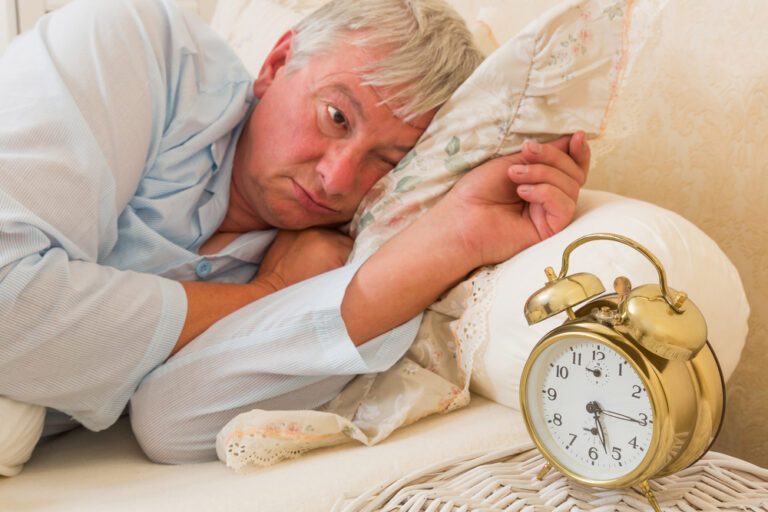Sleep is an essential component of our overall health and well-being. However, as we age, many of us experience difficulties sleeping through the night. This is especially true for senior citizens, who often struggle with falling asleep, staying asleep and feeling rested in the morning.
The National Library of Medicine reports that as many as 50% of older adults complain about difficulty initiating or maintaining sleep. Naturally, this can lead to a range of physical and mental health issues. So, what are some of the top reasons senior citizens have trouble sleeping through the night?
Chronic pain and inflammation.
One of the most common reasons why senior citizens have trouble sleeping through the night is chronic pain and inflammation. As we age, our bodies are more susceptible to conditions such as arthritis. It causes joint pain, stiffness and discomfort, especially at night. Chronic pain can make it difficult to fall asleep. It can also cause frequent awakenings throughout the night.
In addition, inflammation can contribute to sleep apnea. This is a condition in which breathing is interrupted during sleep, leading to snoring, gasping and other symptoms that can disrupt sleep. “When learning how to sleep with pain, the type of pain may dictate your sleeping position,” notes Danielle Pacheco on SleepFoundation.org, “Those with hip, knee, or shoulder pain — as in the case of rheumatoid arthritis — may need to avoid sleeping on their side.”
Sleep apnea and breathing disorders.
Speaking of sleep apnea, this is another common reason why senior citizens have trouble sleeping through the night. As we age, our airways can become narrower. This can contribute to snoring, gasping and other symptoms of sleep apnea. The condition not only disrupts sleep, but it can also lead to a range of health issues, including high blood pressure, heart disease and stroke.
Fortunately, there are treatment options available for sleep apnea. They include continuous positive airway pressure (CPAP) machines, which can help seniors breathe more easily during sleep.
Anxiety and depression.
Another factor that can contribute to sleep disturbances among seniors is anxiety and depression. As we age, we may experience more stressors. They can include health problems, financial concerns and social isolation. All of these factors take a toll on our mental health. Anxiety and depression can cause racing thoughts, feelings of sadness or hopelessness as well as other symptoms that can make it difficult to fall asleep or stay asleep. Moreover, sleep disturbances can exacerbate anxiety and depression.
Uncomfortable beds.
An old bed can wreak havoc on a senior’s ability to sleep peacefully. If it’s not firm enough, it can lead to back aches and other pains. Not to mention, a mattress that is too soft makes it difficult to get out of the bed with ease.
Home hospital beds allow individuals to increase sleeping comfort by adjusting bed positioning with proper therapeutic mattress surfaces. Home hospital beds are perfect for individuals who have hard times getting in and out of bed, have sleeping issues or insomnia. To learn more, please don’t hesitate to call us at 416-267-9800 or email us at info@lifecaremobility.ca. You may also contact us by filling out the form on our Contact page!










